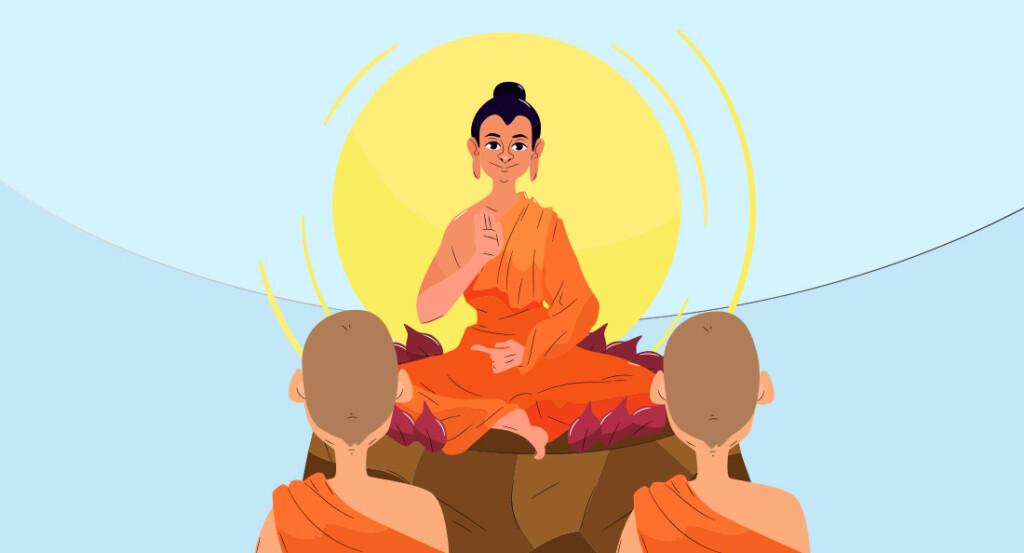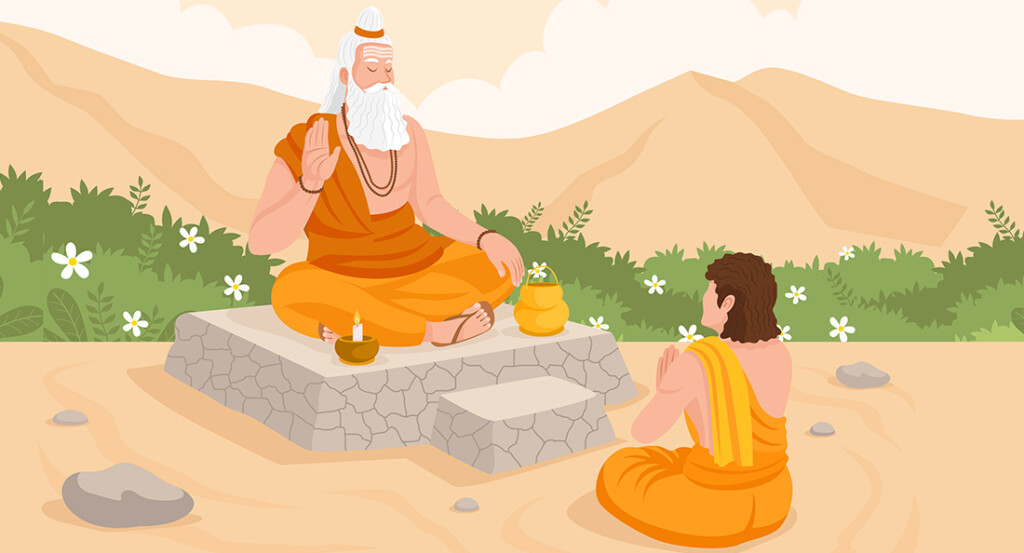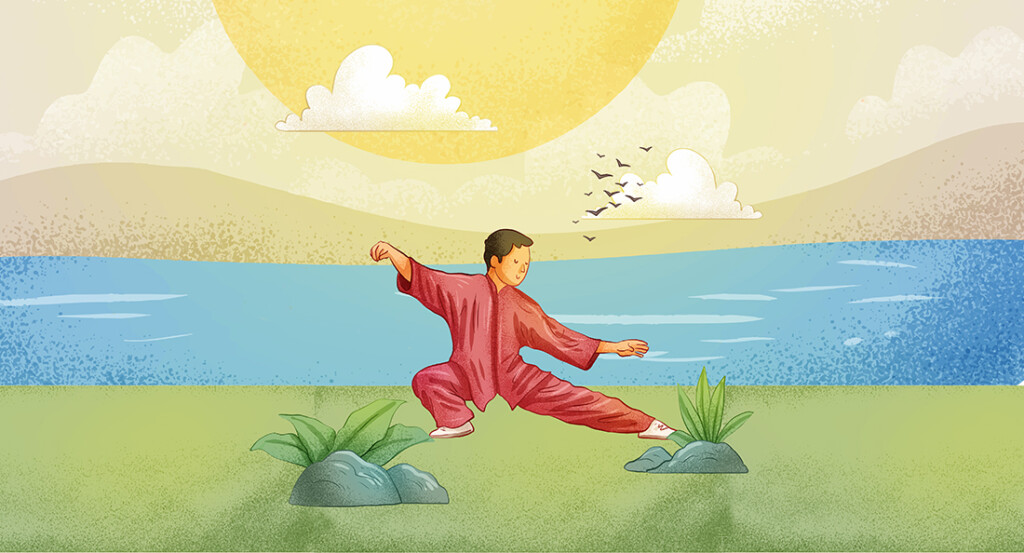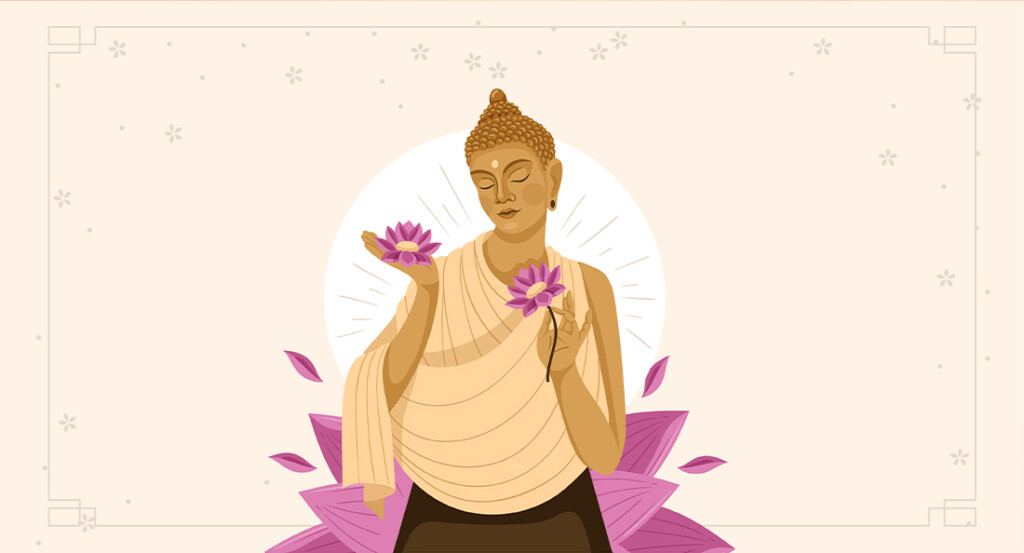The Art of Letting Go: Detachment and Liberation in Life
(Based on the live discourse of Param Dwij)
(परम द्विज के प्रवचन पर आधारित)

The notion of ‘letting go’, in this era of constant human character change and attachment to material possessions, is a dominant concept in various spiritual philosophies that delves into the art of letting go, exploring its role in achieving detachment, inner peace, and ultimate liberation.
For that, one needs to tame their consciousness and foster the virtue of detachment in the self, which involves shedding layers of attachment that bind people to the material world. People need to understand that detachment is not about apathy or indifference. In fact, it is a conscious choice to release the grip of desires, expectations and fears.
It can uplift people’s consciousness to liberate themselves from the cycle of suffering and pave the way for profound understanding and realisation of spirituality.
It has been at the center of almost all religious and spiritual traditions around the world that have debated in some way which people to carry out this life progressing in the course of spiritual pursuits.
The Wisdom of Non-Attachment in Buddhism
Buddhist philosophy revolves around the concept of impermanence (anicca) and the resulting suffering caused by moh, attachment. Attachment leads to dukh, suffering, and nirvana, a liberation that can be attained through the Eightfold Paths, which include spiritual practices that cultivate mindfulness, ethical conduct, and mental discipline that delves into Buddhist teachings that can help people detach from worldly desires.

Renunciation and Self-Realization in Hinduism
The concept of ‘Vairagya’ has been widely discussed in Hinduism philosophy, which promotes detachment, as the Bhagwat Gita advocates performing one’s duties without attachment to the outcome. This encourages people to practice renunciation (sanyas) as a means of achieving self-realization in the pursuit of Moksha.

Harmonising with the Flow in the Taoism
In Taoism, the concept of ‘wu wi’ means ‘non-action’ or ‘effortless action,’ emphasizing aligning oneself with the natural flow of life rather than resisting it by letting go of personal desires and striving that people can achieve harmony with the Tao, demonstrating how the philosophy of ‘wu wei’ can lead to a state of inner peace and spontaneity.

Union through Detachment in Christian Mysticism
Following the path of detachment, experiencing a deeper and more profound union with God has been widely discussed as a means of spiritual exploration. ‘Kenosis,’ or self-emptying,’ entails releasing egoic attachment and desire to make room for the presence of divine energy, emphasising the transformative power of letting go of spiritual communion.
Embracing Emptiness in Zen Buddhism
Zen Buddhism teaches the importance of “mu,” or emptiness, emphasising direct experience through meditation, reflection, and contemplation, as practitioners seek to realise the emptiness of all things, including the self, as understanding of emptiness can lead to profound liberation.

Examining various religious and spiritual traditions, the art of letting go is at the heart of their belief systems in some or all ways, providing a path to liberation and inner peace, whether through mindfulness, renunciation, and harmonising with the flow of self-emptying or embracing emptiness as the act of releasing attachment serves as a transformative practice. People can navigate life’s ups and downs with greater equanimity by employing the wisdom of detachment and focusing on the sole purpose of life: spiritual awareness and liberation.
In general, the spiritual practice of ‘letting go’ is regarded as a must for everyone in order to remain afresh and full of life.
It is pathetic to stay in space waiting for people or desired things, expecting they will reverse you. People can’t hold onto someone longer he/she lets go of them. Such people have to give up holding at some point in life as by doing this, they only hurt themselves. In this whole journey, they only hurt themselves.

Acceptance
The first virtue one can accept to develop is the virtue of acceptance, because living a life in denial can hurt you more than anything else in the world, especially not accepting one’s emotions, and people are unaware of the deep pain it can bring back with it.
So, the first step is to recognize and accept the emotion that one is experiencing. People are afraid of being rejected in their lives. It requires developing an epiphany about the painful incidents that happen to people. The pain and distress it causes are not intended for people; rather, they occur to bring about various changes that the universe has planned in the background. People need to decipher and think that the things that are destined for them will reach them even after all the odds and obscurities.
Rebirth: Staying with Acceptance
Acceptance is not only what a person requires to imbibe the art of letting go. It is, however, only the first stage; the second stage requires a great deal of courage. And when a person learns this art, that is the person’s rebirth in the same life. People must see things for what they are, not what they want them to be.

This stage provides people on the journey with the opportunity to evolve into fine beings by following the routine, living their usual life with or without that person or desire of things such as waking up in the morning, working out, eating healthy diets, and working hard toward their goal while accepting the reality.
Move Ahead in Life by Moving Inward
The ‘Art of Letting Go’ requires people to practice resigning from the past in order to let go and lead their ‘self’ ahead in life, mentally liberating themselves from all worries, insecurities, and vain desires.

In this case, vulnerability can be a strength by expressing their heart to someone even if they know the next person does not feel the same way because communicating what is overwhelming inwards is too difficult to express in words and actions.
Newness in life is only possible when a person musters the courage to break free from the confines of their past.



